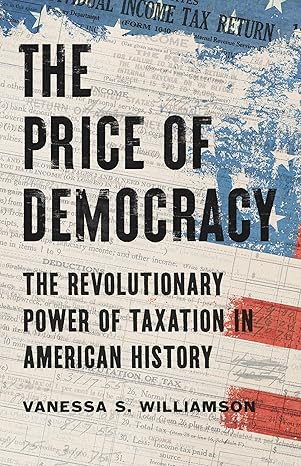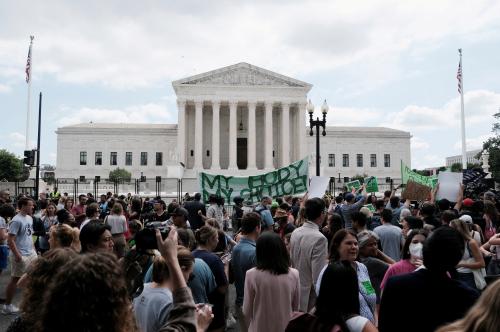The anti-abortion law recently signed by Alabama Gov. Kay Ivey is more in the nature of performance art than serious lawmaking. It is being touted as the nation’s toughest abortion proscription. Anti-abortion activists see it as a great triumph, while politicians and organizations that favor a woman’s right to choose have been using the prospect and now the reality of the law to mobilize supporters and raise money. It allows Alabama’s Republican legislators to show their right-to-life bona fides and makes the state a fierce symbol of opposition to abortion without doing much more.
It does little more because Alabama already has numerous anti-abortion laws on its books. Reading them is a journey through the history of legal attempts pressed by foes of abortion to limit access to abortion services. These laws deal with such matters as abortions after a fetus is presumed viable, so-called partial-birth or dismemberment abortions, and waiting periods that will supposedly allow women to make better-informed decisions. They create serious crimes and provide for civil remedies in some circumstances.
What makes the recently passed Alabama statute different is that it does not seek to occupy the space that Roe v. Wade arguably left open for state regulation. Rather, subject to certain exceptions, it seeks to protect the fetus at all stages of development from the moment of conception on. But Alabama already has such a statute and has had one since 1901.
Any person who willfully administers to any pregnant woman any drug or substance or uses or employs any instrument or other means to induce an abortion, miscarriage or premature delivery or aids, abets or prescribes for the same, unless the same is necessary to preserve her life or health and done for that purpose, shall on conviction be fined not less than $100.00 nor more than $1,000.00 and may also be imprisoned in the county jail or sentenced to hard labor for the county for not more than 12 months. (Ala. Code § 13A-13-7)
If this is not enough, under the prior law as interpreted:
A pregnant woman, knowingly consenting to operation or administration of drug to procure her miscarriage without honestly believing it necessary to preserve her life, is guilty of aiding or abetting commission of offense of inducing or attempting to induce abortion and indictable therefor as principal. (sic) Steed v. State, 27 Ala.App. 263 (1936).
The recently passed legislation recognizes that this statute has never been repealed and correctly states that it has been rendered unenforceable by Roe v. Wade, but it then goes on to suggest that in rendering the statute unenforceable the Supreme Court somehow repealed it, an act that only the Alabama legislature could accomplish. In fact, if the Supreme Court were to reverse Roe, Alabama, having kept the earlier law on its books, would almost certainly be able to enforce it. Having made its flawed case for the need for a new statute, the Alabama legislature passed its own version of the 1901 Act, although if the prior statute remains unenforceable under Roe so does its own Act.
The major change the new legislation would make in Alabama’s abortion law is that it raises the level of offense from a misdemeanor to a felony, not a trivial change given the punishment risk the change entails, but it is not as if the law is newly barring what Alabama had not barred before. Moreover, the new law also provides: “No woman upon whom an abortion is performed or attempted to be performed shall be criminally or civilly liable,” presumably removing the risk of prosecution that Alabama women who knowingly seek abortions once faced.
It is true that the law has no clear exception for rape or incest, but neither does the existing Alabama law. Moreover, contrary to early descriptions of what the law might do, the law does not forbid terminations of ectopic pregnancies, abortions of fetuses that have a “lethal anomaly” (meaning they are likely to be born dead or to die soon after birth), or abortions where “the child’s mother has a condition that so complicates her medical condition that it necessitates the termination of her pregnancy to avert her death or to avert serious risk of substantial physical impairment of a major bodily function.” While the latter must be documented by the independent judgment of two physicians, physicians “confirming the serious health risk to the child’s mother,” may not be held criminally or civilly liable for their judgments.
In addition, the law may have a back door to allow abortions in the case of women who are pregnant as a result of rape or incest and even, perhaps, from consensual intercourse. It permits abortions when a psychiatrist determines that a “woman has a diagnosed serious mental illness and because of it, there is reasonable medical judgment that she will engage in conduct that could result in her death or the death of her unborn child.” The key here is the distinction between a “serious mental illness” and a mere “emotional condition or a mental illness.” The latter, even if it might lead a woman to kill herself or her fetus, is insufficient to justify an abortion, although the same predicted outcomes are sufficient to justify an abortion when a mental illness is “serious.” Will it be difficult for a woman impregnated by a rapist or close relative to find a psychiatrist willing to conclude that such an unwanted pregnancy has left her so deeply depressed or otherwise mentally ill that either suicide or feticide appear likely? If not, an exception for rape or incest is hidden here.
The only other point to make before leaving the language of the bill is what I can only think of as the chutzpah of the bill’s drafters. In the preamble, as part of the justification for the bill, the drafters wrote:
In the United States Declaration of Independence, the principle of natural law that “all men are created equal” was articulated. The self-evident truth found in natural law, that all human beings are equal from creation, was at least one of the bases for the anti-slavery movement, the women’s suffrage movement, the Nuremberg war crimes trials, and the American civil rights movement. If those movements had not been able to appeal to the truth of universal human equality, they could not have been successful.
To see the Alabama legislature invoke the antislavery and civil rights movements as moral justifications for making abortion a felony is gobsmacking, to say the least.
When Governor Ivey signed the Alabama bill into law, she not only recognized that it barely differed from the abortion proscription already on the books, but also recognized that so long as Roe v. Wade stood in its current form neither law could be generally enforced. This is true. Indeed, a claimed justification for the law is that it will force, or at least provide the occasion for, the Supreme Court to revisit and overturn Roe v. Wade.
This rationale cannot, however, withstand scrutiny. The Supreme Court already has heading to it a case in which the Fifth Circuit upheld a Louisiana statute almost identical to the Texas Law that was reversed in large part in “Whole Woman’s Health.” The Texas law, with only pretend medical justifications, imposed such onerous conditions on abortion providers that almost none could continue to offer its services. If the Court seeks to overturn Roe by a thousand cuts, a process that has long been underway, overruling Whole Women’s Health would be the deepest cut to date and almost fatal in states that wanted to make it so. Moreover, in an opinion authored recently by Justice Thomas in an otherwise unprepossessing case, the Court’s five most conservative justices surprised observers by declaring that respect for precedent is not an “inexorable command,” suggesting a willingness to more freely overturn long-established case law. With this attitude, if a majority of the justices so desired, there is no reason why they could not reach out and overturn Roe in lieu of overruling Whole Woman’s Health.
But even if the Court does not use the Louisiana law to revisit Roe, the war against choice has escalated, and fetal heartbeat laws have been passed by several states. These laws bar abortions after a fetal heartbeat can be detected, often as early as the 6th week of a pregnancy, which may be before a woman knows she is pregnant. Fetal heartbeat laws cannot be reconciled with Roe’s protection of a woman’s almost absolute right to choose during the first trimester of her pregnancy. Challenges to them have already begun and should reach the Supreme Court before cases protesting the new Alabama law arrive.
In short, the Alabama law is mainly political theater. We should not applaud.
The Brookings Institution is committed to quality, independence, and impact.
We are supported by a diverse array of funders. In line with our values and policies, each Brookings publication represents the sole views of its author(s).











Commentary
Alabama’s abortion act is political theater
May 21, 2019